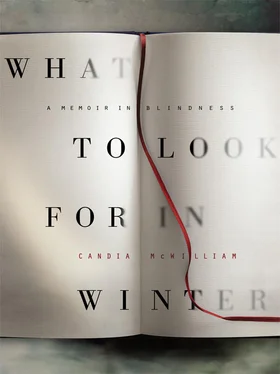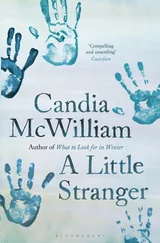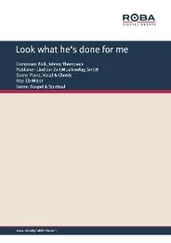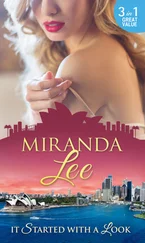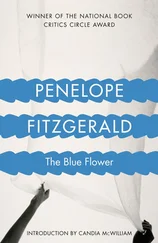The grill began to send out little flames. I bent to attend to it. There was a thick smell of burning hair. The paint with which I had sprayed my hair and dungarees was gold car paint, highly flammable. I rushed upstairs dressed in flames, a zip, underwear and cowboy boots, drenched myself in the bath and returned later to my own party re-attired in some no doubt fearful ensemble, maybe even the £2.99 pink rubber dress from Sex on the King’s Road.
At the party was my very quiet friend Amschel Rothschild. He wore a navy blue velvet suit, an expression of amusement on his face, one that might have been painted by El Greco, and a cymbidium from his hothouse in his buttonhole. He had neatly sprayed the orchid gold.
But for him, who took me out of Cambridge for the last weeks before Finals and set me to my books as you might set an animal to exercise, I should have had no kind of a degree, let alone the pleasure of discovering what it means really to work at a subject and how that pleasure has no end. While it may be solitary, it is, at its best, love and sight, or, rather, vision. A love in which there is no doubt that you wish to do the best you can, not for your own but for its sake. Amschel died far too young and I shall miss him till I die. So I owe him my ‘good’ degree and many more degrees of gratitude.
In the summer of 1976, there was a heat that dried the green out of England. It was possible to faint away when you stood up. Water was rationed. There was even, I believe, a Minister for Water, or perhaps he was a Minister for Drought. During that summer, I fainted on a train that was crossing Suffolk and woke up with words branded on my arm in sunburn: Second-Class. I had seldom travelled far; after all, England was quite far away from my first home in Edinburgh and Colonsay was in itself both domestic and utterly exotic. There had been Holland, Italy, Switzerland; nowhere outwith Europe.
Amschel had at the time the use of his parents’ house in St James’s on Barbados. The house was reminiscent of Caribbean life as it’s not often advertised, a life of conversation, books and ideas. Amschel invited Tamasin and me to stay at the house and then to travel with him to Cape Cod to join his sister Emma.
Two days before travelling on this, to me, unimaginably complicated journey, I was on the tube on my way to work at Vogue . A nice young man called Simon Crow greeted me. I was standing; it was a crowded carriage. Simon was sitting down. He asked me what I was up to and I said that I was going on an aeroplane to Barbados and America. Simon was in the Foreign Office and knew his stuff, clearly.
‘Have you got a passport and a visa?’ he asked, still half asleep.
I had neither, but I did have a pair of pink stripy lounging trousers I’d sewn that I considered very suitable for Caribbean nights.
Simon Crow, who I think was at Oxford while I was at Cambridge, got me a passport in one day and stood in line to get me a visa. The sort of man you need in diplomacy.
The reader may not believe the following story. Or rather, it could not happen now, as old people say. Two days before my first wedding, my husband-to-be asked if I had a passport in my married name, since our honeymoon destination might require one. I really don’t know whether I quailed within while looking noncommittal or if I confessed. What I did do was telephone the Passport Office in Petty France. The telephone was answered in those times by a person. I blurted out my story in all its idiotic detail:
‘Getting married in two days; new surname going to be Wallop, yes that’s right W-A-L–L-O-P; don’t know where I’m going because it’s my honeymoon; yes very happy indeed; I have got into a mess like this before and the person that helped me out was called Mr Potts.’
‘This is Potts speaking.’
But I’m travelling ahead of myself. In Barbados I learned how delicious are limes, that mace is the web that wraps itself around the nutmeg, that really good manners go all through a person, that Tamasin would be pre-eminent in whatever world she decided to take on, that you must never sunbathe under a manchineel tree or its tannic fruit will drip poison on you. I read all the books save for the esoterica concerning the world of spermatology (Amschel’s father Victor Rothschild was a world expert on sperm as well as many other things including Jonathan Swift and the safe defusing of bombs). I sat on the white sand reading books and going blotchy in my Celtic fashion. Only one beach boy tried to pick me up during the whole ten days and he gave up on about day four when I said I was happy reading. ‘You not a woman, you a machine.’
It’s the quiet of the luxury of the place that I shall not forget, the white coral walls, the polished white coral floor, the stuffed white sofas and chairs, the delectable shade, the pale, light-lipped sea. In the library, the books were plump with sea salt, hygroscopically swollen. Books literally holding water is an theme for me since so much of my life has been spent at sea or enislanded.
The rain came promptly at siesta time, when Amschel would retire with verbally sophisticated modern authors whose drift he might sometimes explain to me later. Tamasin and I occasionally set out upon adventures, certainly the least bearable of which was a trip on a pirate vessel named the Jolly Roger. This vessel pumped out reggae for an hour in the middle of each afternoon, anchored offshore, offered limitless orange petrol to drink, and was operated by a captain with a strong line in innuendo; the voyage’s highlight was a mock marriage involving a good deal of crazy foam and rice. I do not mind if I never have that kind of fun again. Tamasin, in her unapproachable beauty, fared rather better than a poiseless Scot absolutely lost without her book. The drink was at this stage of my life too nasty even for me to drink.
We flew to Boston and drove down boulevards of thrilling tackiness; here the Leaning Tower of Pizza, there ‘Dan’s Clams: the more you eat the more you get’. The house Emma and her friend Alexander Cockburn had taken for the summer was a silvery clapboard house with verandas, perfect for a reader of Updike. You could walk out along the quay and swim from it through soft yet salt water edged with rushes. Intelligence was again the air of the house, this time fashionably radical and very fast moving. Alexander made us Manhattans to drink. For some reason, although I had in Barbados been soaking up four or five daiquiris a day, that Manhattan did me in. I spoke in tongues, I howled, I went on and on about the things about which drunks go on and on, the things they drink to forget. I remember being excruciatingly boring about Colonsay, and going on too about mothers. I was out of my depth in all senses after two measures of bourbon, a sugar lump and some bitters.
Emma did what she does, which was remain white and cool. Alexander, having much and distinguished Irish blood, must have seen a drunk Celt before but I was terrified to meet anyone’s eyes at breakfast, so I stayed upstairs for as long as I could reading Paradise Lost. I also found, read and was scared by Hollywood Babylon by Kenneth Anger. Its photographs of dead people in undignified settings, head in the oven, perfect hairdo hanging out of a ruined car, stays with me. It set one register of my bad dreams. Somehow the shamefulness of the book attached itself to my shame about having got so drunk.
I reassembled myself and occurred brightly into the others’ normal day at about eleven with the gelatinous acted normality that will be familiar to all who are or know alcoholics.
We progressed to New York, where Emma lived on Central Park West. Again the note in the house was of the Left, of books and the want of show. I discovered that New York was a walkable city, like Edinburgh, and loved it. I was unprepared for its expressive beauty, the variety of shapes, the quality of reciprocated light thrown between the buildings. Amschel fell for a Moholy-Nagy in the Guggenheim and drank gimlets at the Plaza Bar. We visited a bookshop at midnight and called in meals; what could be better?
Читать дальше
